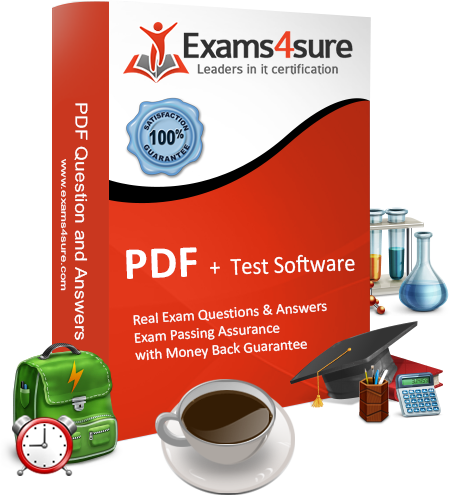
American College of Rheumatology RhMSUS
In Real Exam At Testing Centre
Exact Questions as in Real Exam Word by Word
American College of Rheumatology RhMSUS Questions and Answers
Latest and Up-to-Date RhMSUS dumps with real exam questions answers.
Get 3-Months free updates without any extra charges.
Experience same exam environment before appearing in the certification exam.
100% exam passing guarante in the first attempt.
15 % discount on more than one license and 25 % discount on 10+ license purchases.
100% secure purchase on SSL.
Completely private purchase without sharing your personal info with anyone.
Question 1:
A practitioner is counseling a patient with suspected rotator cuff tendinopathy on imaging options. Which of the following is CORRECT regarding diagnostic ultrasound examination?
A. It uses sound energy with no adverse effects found in clinical studies.
B. It provides the same information as an MRI without gadolinium.
C. It obviates the need for X-ray examination when cortical margins are normal.
D. It is the gold standard for preoperative planning for rotator cuff surgery.
Answer: C
Question 2:
By comparing gray-scale images from before pharmacologic treatment and after months of treatment, rheumatologists are able to assess patient improvement and response with regard to:
A. Erosions in rheumatoid arthritis.
B. Osteophytes in osteoarthritis.
C. Synovitis in rheumatoid arthritis.
D. Articular cartilage damage in osteoarthritis.
Answer: C
Question 3:
In which situation is an ultrasound MOST appropriate for making the correct clinical diagnosis?
A. In gout, using the double contour sign alone as diagnostic confirmation of the disease
B. In juvenile idiopathic arthritis, to diagnose tenosynovitis in a patient with ankle swelling
C. In rheumatoid arthritis, to diagnose carpal tunnel syndrome
D. In fibromyalgia, to confirm the absence of joint and tendon pathology
Answer: B
Question 4:
In performing an in-plane ultrasound-guided procedure, it is helpful to orient the transducer so that the:
A. Needle crosses the plane of the transducer.
B. Needle angle relative to the transducer is minimized.
C. Transducer touches the point where the needle penetrates the skin.
D. Target is as close as possible to the side of the transducer where the needle will be inserted.
Answer: D
Question 5:
Which probe is the BEST choice for ultrasound examination of the adult wrist?
A. Linear 20-25 mm, 3-8 MHz transducer
B. Linear 20-25 mm, 10-18 MHz transducer
C. Linear 40-50 mm, 3-8 MHz transducer
D. Linear 40-50 mm, 10-18 MHz transducer
Answer: B
RhMSUS (Registered in Musculoskeletal™ Ultrasound) certification, offered by the American College of Rheumatology (ACR), is for healthcare professionals specializing in musculoskeletal (MSK) ultrasound within the field of rheumatology. Mastery of these skills enables rheumatologists to perform detailed joint and soft tissue assessments, guide needle placements for injections or aspirations, and monitor disease progression or treatment responses with greater precision.
Exam Structure:
RhMSUS exam is a comprehensive assessment that evaluates your knowledge and skills in various aspects of MSK ultrasound, including:
Image acquisition and interpretation
Anatomy and pathology of musculoskeletal structures
Ultrasound-guided procedures
Integration of ultrasound findings into clinical decision-making
With the complete collection of RhMSUS practice test, Exams4sure has assembled to take you through ACR-MUCR test questions for your American College of Rheumatology exam preparation. In this RhMSUS exam dumps study guide we have compiled real Musculoskeletal Ultrasound Certification in Rheumatology exam questions with their answers so that you can prepare and pass ACR-MUCR exam in your first attempt.
Familiarity with Exam Format:
One of the main reasons candidates might look towards RhMSUS dumps is to familiarize themselves with the American College of Rheumatology exam format. ACR-MUCR practice exam can give a glimpse into the types of questions asked and how they are structured.
Identifying Key Topics:
Musculoskeletal Ultrasound Certification in Rheumatology exam questions can highlight recurring themes and topics that are frequently tested, helping American College of Rheumatology candidates to focus their studies on areas of high importance.
Time Constraints:
Candidates under tight schedules may feel pressured to use Musculoskeletal Ultrasound Certification in Rheumatology exam dumps as a way to quickly cover a lot of material. This is often seen in situations where ACR-MUCR certification is needed for job retention or promotion.
Confidence Boosting:
Seeing and answering RhMSUS exam-like questions can boost a candidate's confidence, making them feel more prepared for the actual American College of Rheumatology exam.
A rheumatologist is a medical doctor with additional training in diagnosing and treating musculoskeletal diseases and systemic autoimmune conditions, often called rheumatic diseases. These conditions can affect your joints, muscles, and bones.
Rheumatologists treat a wide range of conditions, including:
While both deal with the musculoskeletal system, rheumatologists focus on non-surgical diagnosis and treatment, while orthopedic surgeons perform surgeries on bones and joints.
Rheumatologists complete medical or osteopathic school followed by residency training in internal medicine or pediatrics. They then undergo a two-to-three-year fellowship specializing in rheumatology. Many are board-certified and participate in continuing medical education programs.


TESTED 24 Mar 2025
Hi this is Romona Kearns from Holland and I would like to tell you that I passed my exam with the use of exams4sure dumps. I got same questions in my exam that I prepared from your test engine software. I will recommend your site to all my friends for sure.
Our all material is important and it will be handy for you. If you have short time for exam so, we are sure with the use of it you will pass it easily with good marks. If you will not pass so, you could feel free to claim your refund. We will give 100% money back guarantee if our customers will not satisfy with our products.